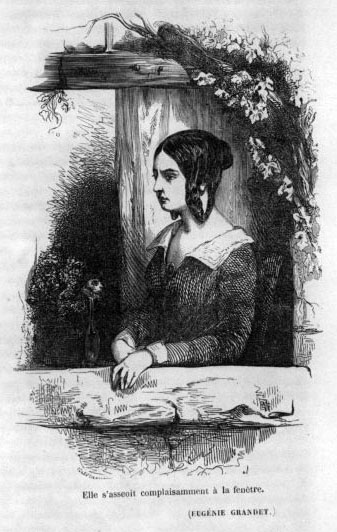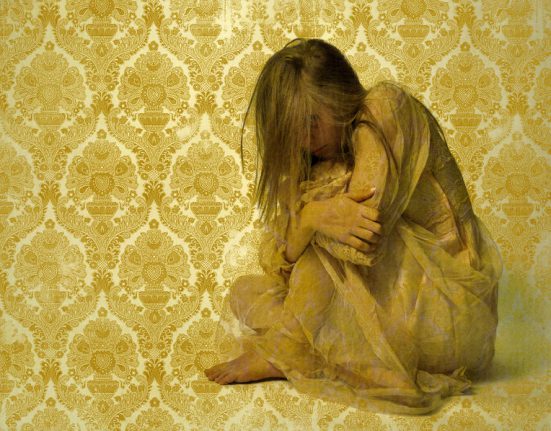In the family and story of ‘Eugenie Grandet,’ changing power of ‘love’ is visible. People foresee that love can transform their lives in a pleasant state, but it is not true always.
The changed behavior of a person due to desire can be easily experienced by other persons closed to him. The apparent changes in the love of Eugenie are easy to observe in her personality, in Nanon, who is the housekeeper and also in the other people.
The Novel Review
It is a novel written by Honoré de Balzac, a French author, and was first published in 1833. The novel is part of Balzac’s larger work known as “La Comédie Humaine,” which is a collection of interconnected stories that provide a comprehensive depiction of French society in the 19th century.
“Eugénie Grandet” tells the story of a young woman named Eugénie, who lives with her father, Félix Grandet, in the town of Saumur, France. Félix Grandet is a wealthy and miserly man who amasses his fortune through shrewd financial dealings and extreme frugality. Eugénie, on the other hand, is a gentle and innocent young woman, deeply devoted to her father.
The novel explores themes such as greed, materialism, and the impact of money on human relationships. It portrays the stark contrast between Félix Grandet’s relentless pursuit of wealth and his daughter Eugénie’s kind-hearted nature. Despite her father’s oppressive control over her life and his refusal to allow her to marry for love, Eugénie remains loyal and dutiful.
The arrival of Eugénie’s cousin, Charles Grandet, from Paris adds an additional layer to the story. Charles, who is unaware of the true extent of his family’s wealth, becomes entangled in the complex web of money, inheritance, and social expectations.
“Eugénie Grandet” is known for its vivid portrayal of characters and its incisive critique of the bourgeoisie and their preoccupation with material possessions. Balzac’s writing delves into the human psyche, examining the choices individuals make when confronted with the power and allure of wealth.
Eugenie Grandet & Love
The claim that love builds itself up consists of the notion that of feeling and emotions that attracts the individual. Love builds up through presupposing the love in the heart of other people because individuals cannot teach the other individual on the ground of buildup.
Scholars emphasizes that only through acknowledging the love in the heart of another individual, can one individual build up his own heart with love. This is the foundation that exists spiritually. Such love comes from the real sense of belonging and recognizing the other individual, his actions, and intentions true heartedly.
Eugenie Grandet was a simple girl who is not conscious about her looks, but when she felt the love of Charles, her cousin, she started seeing herself by other’s vision and judged her as she was someone else or like the eyes of her lover.
Nanon wants to buy some food for Charles and went to get some money from the father of Eugenie, who is a wiser person. Nanon never disagrees with the father of Eugenie by what he used to do, but with the advent of Charles, she wants to please him and Eugenie, so argue with her father. This is the expression of her mind and thoughts that now she hides from Eugenie and her father.
Nanon and Eugenie Grandet showed transformation with the influence of love. Now, they have become more introvert, no more simple women who cannot hide emotions and thoughts upon a particular event. Their mode of change is of deterministic nature that is likely to lie to cover their feelings.
The Key Themes:
- Wealth and Greed: A central theme in the novel is the pursuit of wealth and its consequences. Félix Grandet, Eugénie’s father, is portrayed as a miserly character obsessed with accumulating wealth. Balzac depicts the corrosive effects of greed and materialism, showing how the relentless pursuit of money can lead to moral decay and emotional impoverishment.
- Family and Duty: The theme of family and duty is explored through Eugénie’s relationship with her father. Despite his harsh treatment and oppressive control over her life, Eugénie remains loyal and devoted to her father, fulfilling her duty as a daughter. The novel examines the complexities of familial obligations and the sacrifices individuals make for their families.
- Love and Marriage: Balzac delves into the themes of love and marriage, particularly the contrast between love and material considerations. Eugénie experiences unrequited love for her cousin Charles, who is drawn to her wealth rather than her affection. The novel explores the conflicts between love, societal expectations, and financial considerations in the context of marriage.
- Social Hierarchies and Class: “Eugénie Grandet” portrays the rigid social hierarchies and class distinctions of 19th-century French society. It highlights the disparity between the bourgeoisie and the aristocracy, as well as the societal expectations and pressures faced by individuals from different social classes. Balzac provides a critical examination of the influence of wealth and social status on one’s place in society.
- Illusion versus Reality: The novel explores the contrast between appearance and reality. Characters present themselves differently to the world, hiding their true intentions and emotions. Balzac reveals the disparity between the external facade and the inner lives of the characters, emphasizing the deceptive nature of appearances.
- Isolation and Loneliness: The theme of isolation and loneliness is prominent throughout the novel. Eugénie’s sheltered life and her father’s control lead to a sense of isolation, while Félix Grandet’s obsession with wealth and his miserly nature isolate him from meaningful relationships. Balzac explores the emotional and psychological toll of isolation on individuals.
These themes collectively provide a nuanced exploration of human nature, societal dynamics, and the complexities of relationships within the framework of 19th-century French society.
The way story predicts love expression through Eugenie Grandet is impressive and creates inspiration for its readers.



